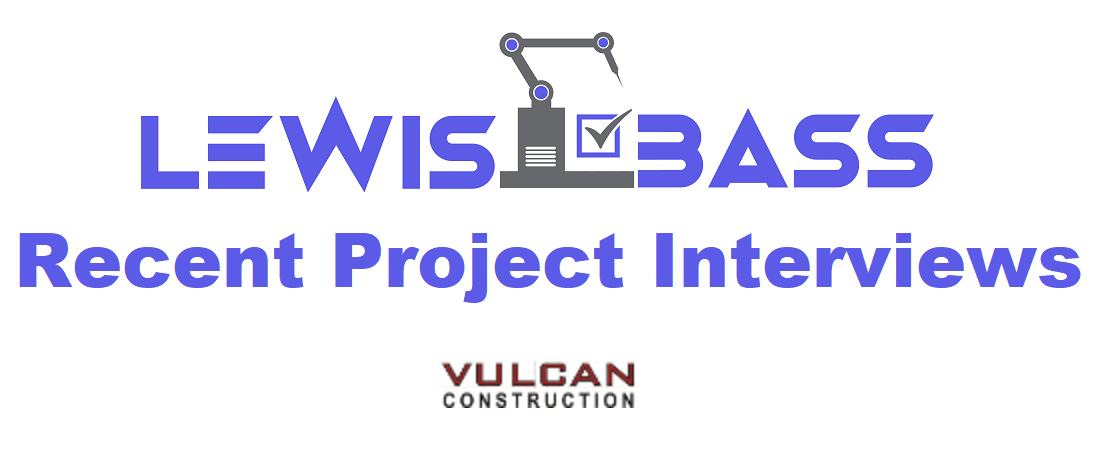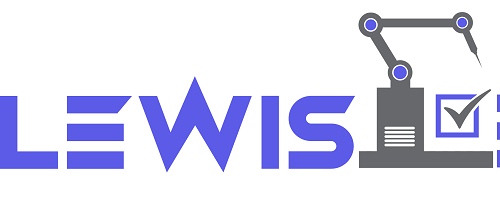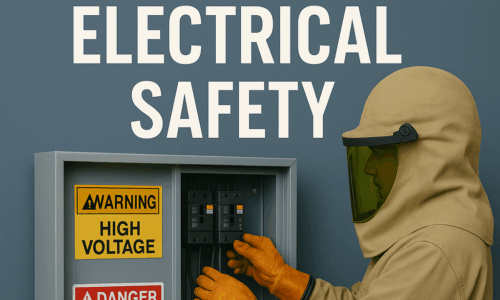Lewis Bass Recent Project Interview Series 2: Vulcan Construction
Welcome back to our continuing series entitled Lewis Bass’s Recent Project Interviews.
This series offers an inside look into recently completed projects in which we played a key role.
In many of our projects, Lewis Bass is brought on as a sub-contractor to a construction firm or other type of general contractor in the course of their providing services to a client.
This blog series will cover these types of projects that see Lewis Bass involved in providing end-stage machine evaluation services to companies seeking to close out their building permit quickly and return to work.
Topics to be covered will include:
- Lessons that were learned in the course of the project.
- Our client’s viewpoints on us as a service provider via an informal Q&A.
- Specific scenarios we encountered that give a deeper insight into our industry.

This week’s project interview features Vulcan Construction
For this blog, we interviewed Chris Wyand, a project manager from Vulcan Construction, Inc. located in Santa Clara, California.
Lewis Bass was contacted by Chris near the end of Q4 in 2020 to evaluate unlisted tools being moved to a new facility they were renovating for a commercial client in Sunnyvale, CA.
Chris’s team at Vulcan provided us with a tool matrix spreadsheet, which is a list of machines (tools) that have been flagged on the job site as not having your typical NRTL marking, only a CE Marking (not valid in North America), and for machines that are considered custom builds (often missing required nameplates).
Lewis Bass was able to setup a pre-inspection walk-through with Chris and the company representatives within two days of initial contact, to personally identify and check each flagged machine in the tool matrix for the possibility of evaluation, and was able to identify 15 tools that would be requiring 3rd party field labeling/UL evaluation.
Originally, per the tool-matrix provided to us by Vulcan Construction, there were 17 tools identified as needing inspection. We saw 15 of these tools in their installed locations in labs onsite, with additional documentation provided to us about two unlisted tools being shipped there from overseas.
However, two days later after we had proposed the job formally, the client reached out to us again stating that another room had been missed from our walk-through, and that there were an additional 2 tools that may need evaluation, bringing the total to 17 confirmed and 2 potential tools needing electrical evaluations.
After additional documentation we requested was furnished for the extra tools we had not been aware of, we made the determination these were not needing evaluation; but we again received contact from the client asking about an NRTL listed machine, a chiller, that we had marked as not needing evaluation on our first walk-through, needing to be connected to another machine as part of a combined system-function between the two.
This changed the dynamic completely and required us to electrically evaluate the two machines as a whole system, which is a requirement of the local AHJ for performing electrical evaluations. We were now at 18 tools needing evaluation. Or so we thought!
Finally, the client reached out once more a week later and made mention of a delay in shipping a tool, and that two other pieces of equipment marked for evaluation were not going to be used in the previously defined combined systems with NRTL-marked machines. Now we were at 15 tools needing evaluation.
As you can imagine, this needed lots of coordination between Vulcan Construction’s Chris Wyand who was preparing for the final building permit inspection, his client in Sunnyvale that needed to constantly sync with our engineering team on the workings and setups of their tools and combinations of tools in their lab, but also our sales department who had to re-quote the job multiple times to account for these changes in scope.
Lastly, during the initial walk-through performed by our engineering team, multiple safety issues were identified with how the tools had been designed overseas. Some tools were missing barriers, safety interlocks, EMO buttons, and other safety detecting logic that is required to be present on machinery in California and around the United States.
We were able to pass off these important detail’s to Vulcan Construction’s client to help them mitigate these issues and solve their own potential liability with providing a safe working environment for their employees but also to avoid fines and potential building permit blocking issues as well.
An informal Q&A with Chris Wyand of Vulcan Construction
Question: What was your overall experience with Lewis Bass performing the third party electrical evaluations for your client’s project?
Chris: Lewis Bass provided an excellent response to an urgent request followed up with a detailed scope of work to correct and expedited the inspection process.
Question: Did Lewis Bass keep your client constantly informed as to the expectations and timelines of the evaluation process?
Chris: LB was very effective in communicating where the customer was in the process and fulfilled their date of completion.
Question: Would you use Lewis Bass again for future projects involving unlisted equipment?
Chris: Most definitely. They are my go to partner if I need a third party review in the future.
Now, let’s talk about Vulcan Construction
According to Vulcan Construction’s website’s about section:
Vulcan Construction harnesses the power of a variety of experiences and backgrounds to fuel a newer company. The company owners bring construction and engineering experience from a variety of disciplines; from industrial to commercial, private to municipal, Vulcan has the background to suit any of your construction needs.
Vulcan is ready and willing to undertake any construction project or building modification that you may have. We, along with our subcontractors, will work diligently to ensure a high-quality project at a reasonable price. We pride ourselves on providing unparalleled customer service and coordination such that even the most difficult occupied spaces can be modified with minimal disruption to the tenant.
Vulcan Construction specializes in commercial construction work
[Vulcan Construction] manages all stages of your construction project. We form alliances with property owners, architects, structural engineers, and specialized tradespeople. We are proud holders of a General Contractor’s B-license for commercial and industrial construction.

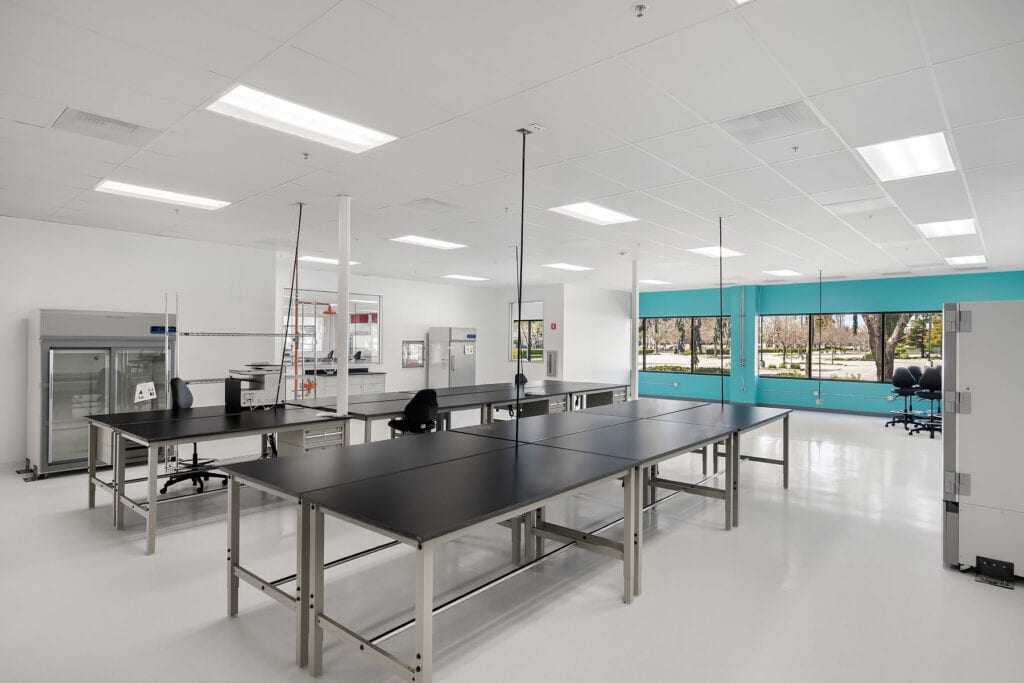
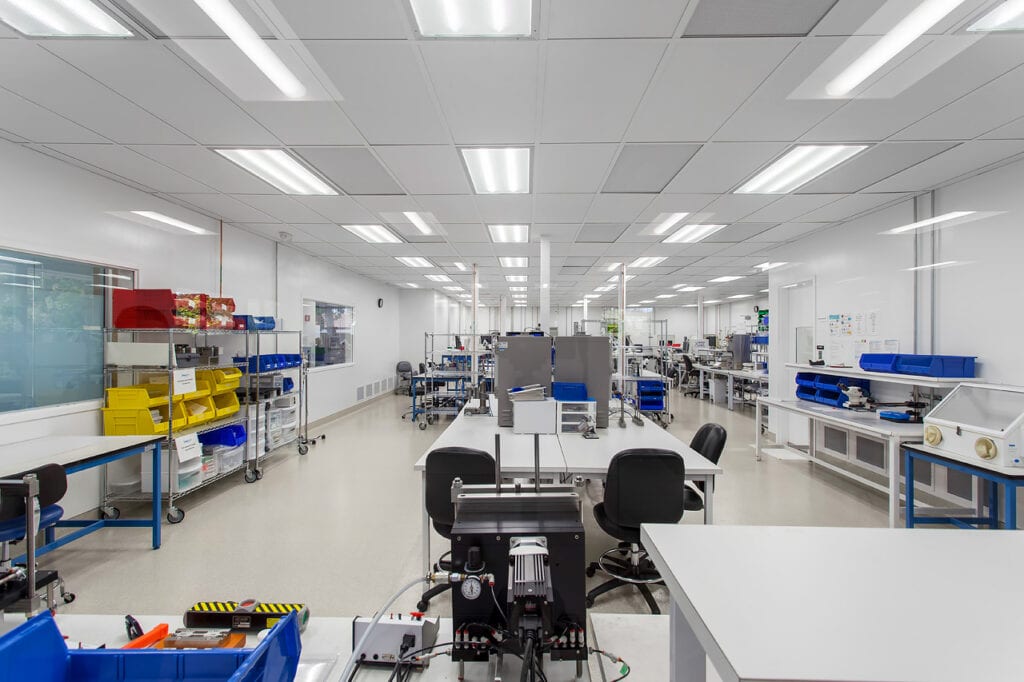
Photos from work done by Vulcan Construction for their commercial clients.
Thanks for reading series 2 of Lewis Bass’s recent project interviews!
To summarize what went well with this project let’s cover what we learned:
1) To avoid delays, always make sure your clients have the most up-to-date and accurate count of unlisted machinery and listed machinery in combination with other unlisted and listed machinery (systems) fully documented and finalized with regard to how the installation will be setup and operated. The more ironed out the planning is for the lab or production facility, the faster Lewis Bass can evaluate and sticker your machines and combined machine systems.
2) Make sure that any tools being installed conform fully to OSHA safety standards and NFPA 79 and 791 expectations that your local Authority Having Jurisdiction (AHJ) is going to look for in a final inspection for the building permit. You’ll not only save your client time, money, and liability issues, but the project will come to a timely and satisfactory conclusion that satisfies all parties.
